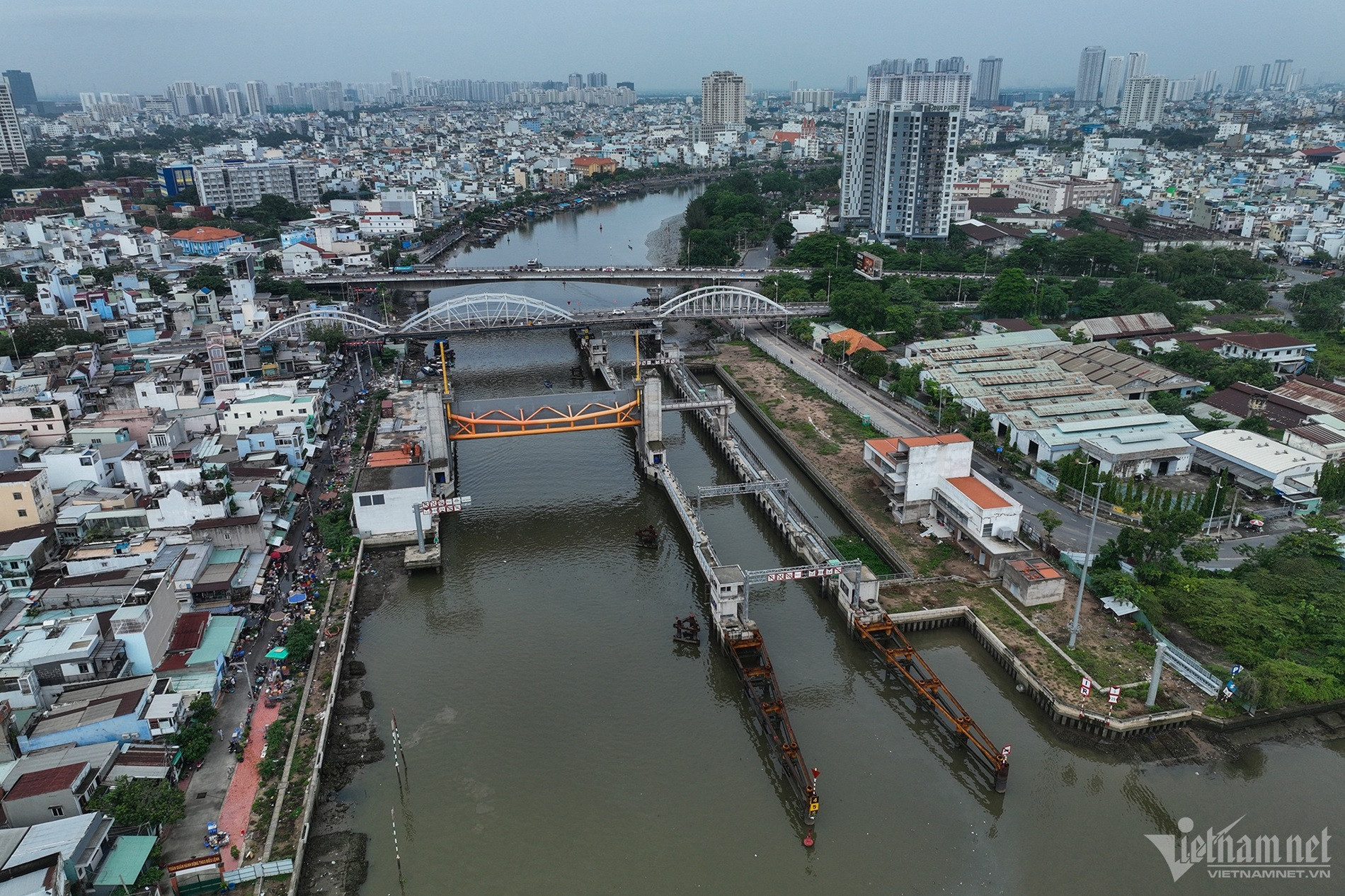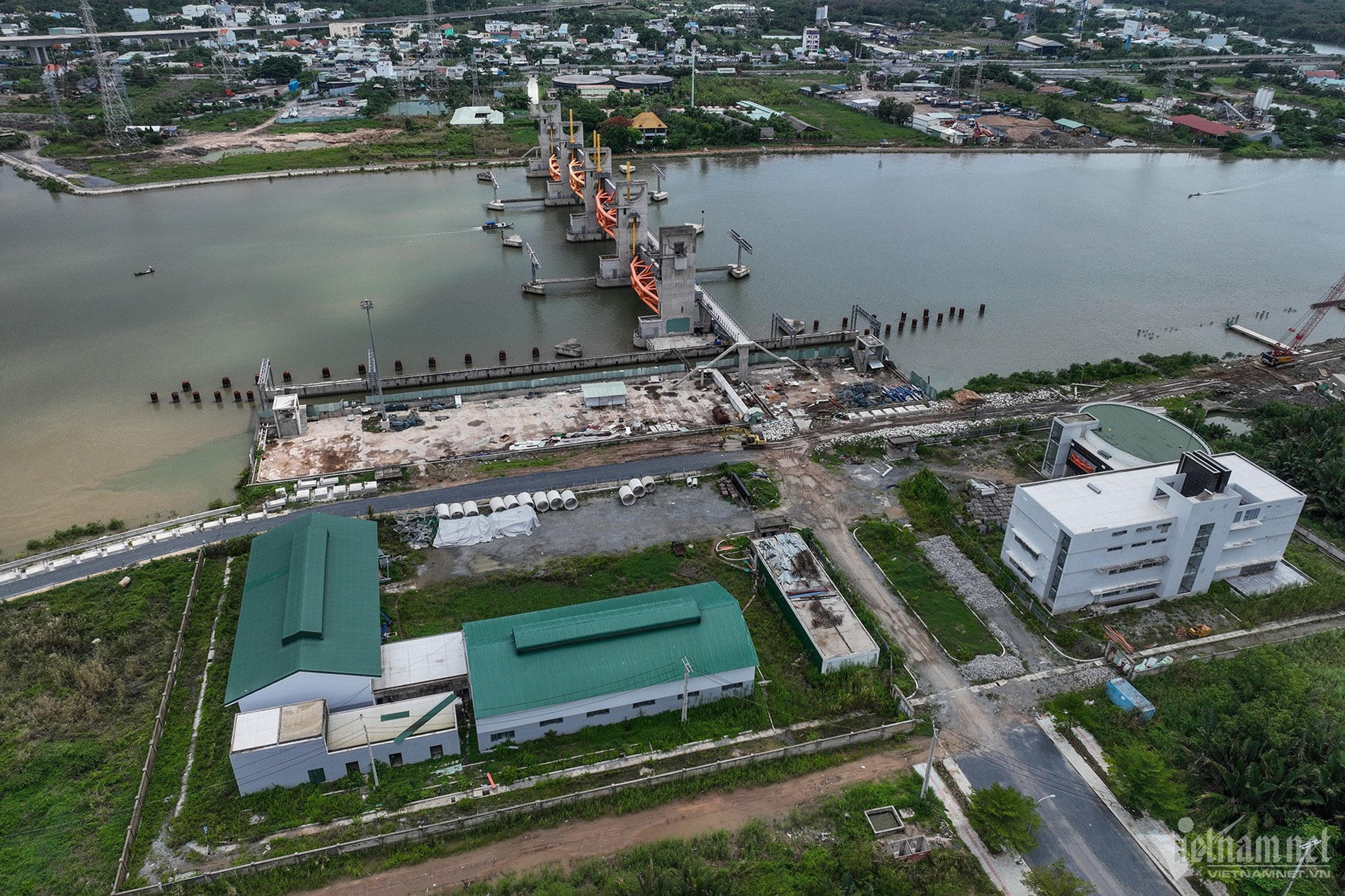The Ho Chi Minh City Flood Control Project, originally set to be completed in 2018, now faces nearly a decade of delays and potential cost overruns amounting to billions more.
With a total investment of approximately 10,000 billion VND, the project was launched in mid-2016 to tackle tidal flooding in Ho Chi Minh City. However, despite reaching over 90% completion, the project has been stalled due to funding and legal challenges.
Three construction pauses amid funding woes

Initially approved by the Prime Minister through Decision No. 1547/QĐ-TTg in October 2008, the project aimed to manage tidal flooding across 570 km², serving around 6.5 million residents in Ho Chi Minh City’s central and riverside areas.
Over the years, the project has faced three significant pauses, totaling 66 months, primarily due to regulatory and financing issues. To support its continuation, the government issued Resolution No. 40 in April 2021, while HCMC authorities have convened numerous meetings to resolve these challenges. Yet, despite these efforts, the project remains stalled.
One primary issue is the lack of adequate funding to complete construction. BIDV, the project's lending bank, could not renew its credit agreement with the investor, Trung Nam Construction and Investment Corporation, due to regulatory barriers, including a repayment of approximately 3,560 billion VND to the State Bank of Vietnam.
The People's Committee of HCMC has suggested that the central government allow the city to allocate local budget funds to finance the project's completion. However, the Ministry of Finance has stated that this proposal is not aligned with current regulations under the 2015 State Budget Law.
With no legal basis for a new resolution to address these ongoing challenges, HCMC remains unable to secure the necessary funds to move forward.
Daily interest adds billions to project costs

For Trung Nam Construction and Investment Corporation, the delays have led to daily loan interest costs of approximately 1.73 billion VND. Should the project be resumed, an estimated 28 months would be required to finalize construction, which includes a 12-month period for investment adjustments and an additional 12 months for construction completion.
To expedite the process, Trung Nam has urged HCM City officials to adjust the project’s total investment to an estimated 14,398 billion VND, aiming for completion by the end of 2025. This would help prevent further delays and mitigate additional interest costs.
In recent discussions, HCM City authorities have requested approval from the Prime Minister to amend the contract’s payment terms and extend the project timeline. If approved, the city could explore land allocation as a method of payment, which would allow the investor to complete the project while reducing accrued interest.
Ho Van